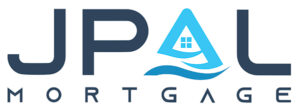Rates, the Federal Reserve, and You: A Primer
What is going on with the Federal Reserve and loan rates?!
Gas is the most expensive its ever been, groceries are eating more of your budget, and it sure feels like the world is going straight to heck in a handbasket at Mach 2 with its hair on fire.
Don’t you worry, though. JPAL Mortgage is here to tell you that it’s not as bad as all that. In fact, it might be the perfect time to buy!
Let’s take a peak into how the current mechanics of the Federal Reserve and their federal funds rate affects you and then you can decide for yourself.
What is the Federal Reserve and the Federal Funds Rate?
The Federal Reserve (The Fed), an independent agency that monitors and makes financial decisions for America’s banking system, started hiking the federal funds rate in March 2022. 
The federal funds rate, as Investopedia defines it, is the rate “refers to the interest rate that banks charge other institutions for lending excess cash to them from their reserve balances on an overnight basis.”
Simply put, if ABC Bank needs cash to fund loans and they don’t have it in deposits, they can borrow funds from XYZ Bank. The Fed has kept this rate at historic lows for over a decade in order to keep borrowing strong and growing the economy.
Now, however, inflation has led to a cycle of wage and price increases, and it’s reaching a critical point. In response, the Federal Reserve has increased the federal funds rate, increasing the cost at which financial institutions can borrow money, and this in turn causes banks and credit unions to increase their loan rates.
Increased rates mean less people will borrow as payments become more expensive. This, in turn, decreases demand and should lower prices.
The Fed has indicated that it’s going to continue to increase rates over the next couple of months.
Does an increase in the federal funds rate mean mortgages will keep increasing? Not necessarily!
Mortgage Loans and Rising Rates
Mortgage rates, unlike auto, recreational, or personal loan rates, don’t always increase when the Federal Reserve raises their rates. Yes, in a rising rate environment you will see mortgage rates follow an upward trend, but it’s for a different reason.
Mortgage rates are more closely tied to the 10-Year Treasury rate. The Treasury rate is the amount of interest the federal government is paying on its debt securities. Yes, investing in US debt is a thing that people do to make money.
We won’t go any further into the weeds with this. Just know that the 10-Year Treasury rate loosely follows the federal funds rate, and mortgages follow the 10-Year Treasury rate.
What does this mean for me?
Most likely you’re asking yourself a few questions right now: how does this affect me? Should I wait or should I buy a house now?
Our momma once said that if you’re stuck between a good decision and a great decision, just make a decision and it’ll all be right as rain.
Applying that to home buying, we think you should buy now if you’re able. We’re not just saying that because we want to help you with your mortgage!
The housing market is starting to cool off, and prices will start to come down. We’ve noticed a few more Open House signs on street corners – and this is good for you!
That’s not to say new and existing home inventory is fantastic. But inventory is not going to improve much over the next few years – houses selling for less means more people are likely to stay put.
If you’re renting, you’re feeling the pain of increased rent costs. In some parts of the country annual rent increases are hitting 40%. Buying may be more expensive now, but so is renting, and that drives the value of staying put down.
You can wait for rates to go back down, whenever that may be, but they might also hold steady or increase. Mortgage rates in the 1980’s were between 10-16%, and don’t think for a moment that those rates would be impossible to reach again.
How do I get started?
Great question! First, you will need a pre-approval for a loan. No realtor will take any bid seriously without a pre-approval.
Ready, set, and click here to contact us to start your journey! We’d love to speak with you and set you up with the best payment and term possible.
We want to work with you, whether it’s your first family home or your tenth investment property.
Reach out to us today and let’s make your dreams possible!
JPAL Mortgage is a licensed broker in the state of Michigan. NMLS# 2189752 | Equal Housing Opportunity | All loans are subject to credit and property approval.
